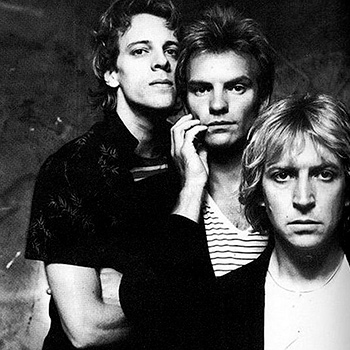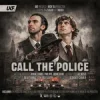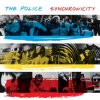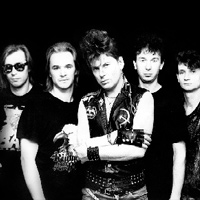

The Police — a legendary British rock band formed in 1977 in London. The trio brought together Sting (real name: Gordon Matthew Sumner), Stewart Copeland, and Andy Summers. The group became one of the most influential acts at the turn of the 1970s–1980s, blending elements of rock, punk, reggae, jazz, and new wave. Their unique sound, intellectual lyrics, and charismatic performances turned The Police into a global sensation and an icon of their era.
Early Years
The idea for the band came from drummer Stewart Copeland, inspired by the explosion of the London punk scene. He met Sting, who at the time was a schoolteacher and jazz club performer in Newcastle. Their creative chemistry was instant, and soon they were joined by experienced guitarist Andy Summers, who had previously played with The Animals and Soft Machine.
From the very beginning, The Police stood out among punk bands — instead of raw aggression, they offered intelligence, melody, and rhythmic sophistication. Their music combined sharp guitar riffs, intricate drum patterns, and Sting’s unmistakable voice.
Breakthrough and Global Fame
The band’s debut album, Outlandos d’Amour (1978), brought them immediate success. Hits like “Roxanne”, “So Lonely”, and “Can’t Stand Losing You” mixed romance, irony, and reggae-inspired rhythms, becoming their signature sound. Critics praised their fresh style and musicianship, while audiences connected with their emotional delivery and memorable melodies.
The follow-up album, Reggatta de Blanc (1979), solidified their reputation, featuring global hits such as “Message in a Bottle” and “Walking on the Moon”, which earned the band their first Grammy Award.
With Zenyatta Mondatta (1980) and Ghost in the Machine (1981), The Police secured their status as international superstars. Songs like “Don’t Stand So Close to Me” and “Every Little Thing She Does Is Magic” became anthems of the new wave era — smart, melodic, and emotionally deep.
Peak of Success — “Synchronicity”
In 1983, the band released their final studio album, “Synchronicity”, a masterpiece and the pinnacle of their creativity. Its lead single, “Every Breath You Take”, topped charts worldwide, earned a Grammy Award, and became one of the most played songs of the 20th century.
Synchronicity combined philosophical lyrics, complex polyrhythms, and an atmosphere of existential tension. The album reflected the band’s artistic maturity as well as growing internal conflicts — during their 1984 tour, The Police decided to go on an indefinite hiatus.
Style and Sound
The Police’s sound was a fusion of punk energy, reggae groove, and jazz intricacy. They were among the first to blend seemingly incompatible genres, creating a formula that paved the way for future styles — from alternative rock to post-punk.
Main characteristics of their style:
- Andy Summers’ guitar effects (chorus and echo);
- Stewart Copeland’s complex polyrhythms;
- Sting’s distinctive vocals and philosophical lyrics;
- Influences from jazz, reggae, progressive rock, and world music.
Achievements
- Over 75 million albums sold worldwide;
- 6 Grammy Awards;
- Inducted into the Rock and Roll Hall of Fame (2003);
- Headliners of the world’s biggest festivals;
- Tracks like “Roxanne,” “Message in a Bottle,” and “Every Breath You Take” appear in the lists of the 100 Greatest Songs of All Time.
Interesting Facts
- “Don’t Stand So Close to Me” was inspired by Nabokov’s novel “Lolita.”
- After the band split, Sting launched a highly successful solo career, becoming one of the world’s most influential musicians.
- Andy Summers became known as an author and photographer, documenting life on tour.
- Stewart Copeland composed scores for films and TV shows, including Wall Street and Rumble Fish.
- In 2007, The Police reunited for a world tour, selling out stadiums and reviving their legendary legacy.
Legacy
The Police left an indelible mark on music history. They proved that pop and rock could be intelligent, experimental, and accessible at the same time. Their influence spans generations — inspiring artists from U2 and Coldplay to Interpol and Sting solo. Today, their songs still resonate across radio waves, films, and live performances, with the name The Police symbolizing the perfect balance of art, intellect, and emotion in rock music.





















